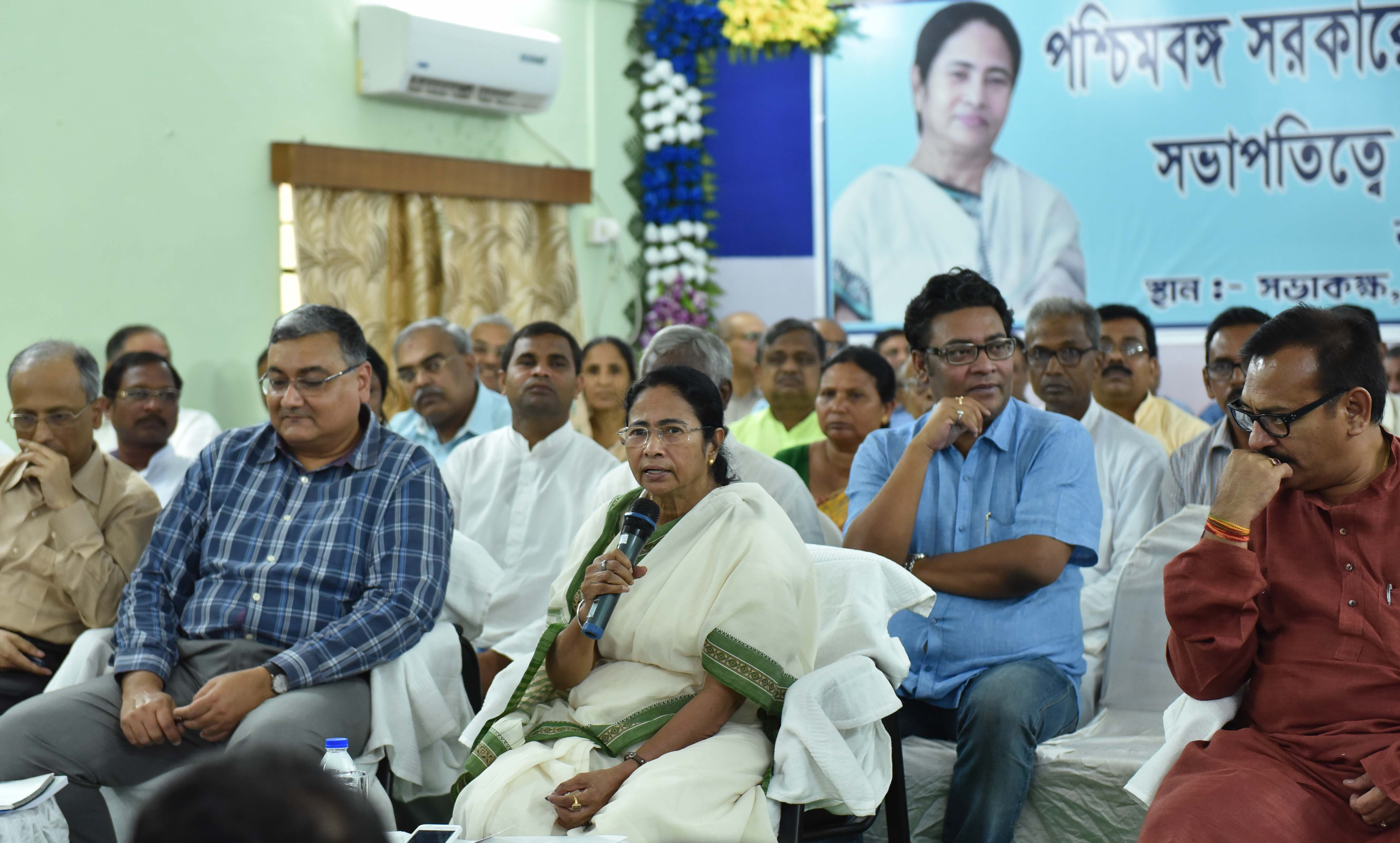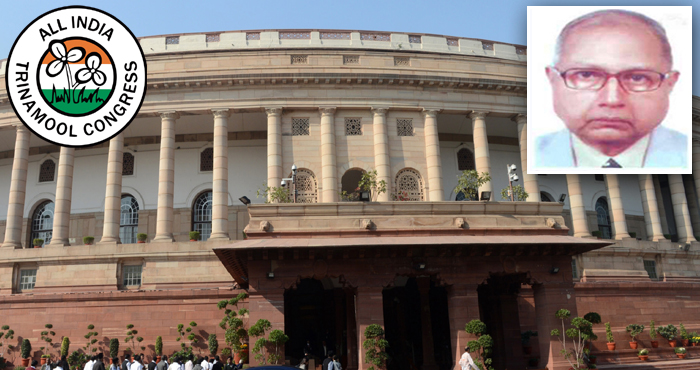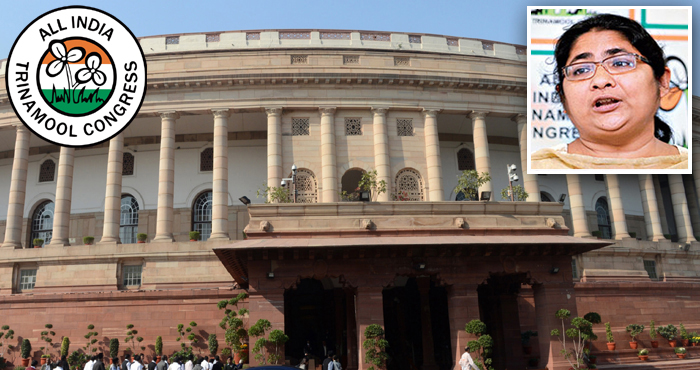In the last 16 months, I have asked supplementary questions and have also participated in Zero Hour, Special Mention, etc., but today, Sir, is a special day as I am making my maiden speech. I am happy I am making my maiden speech at this time, and I want to dedicate my maiden speech to the historic victory of Maa-Mati-Manush in Bengal exactly two months ago.
Thank you, Sir, for allowing me to deliver some points on The Indian Medical Council (Amendment) Bill and The Dentists (Amendment) Bill, 2016.
Healthcare in India is in an abysmal state. The Centre’s share of total public expenditure on health has fallen over the last two years, and India spends less of its GDP on health than some of the world’s poorest countries. Only 1.6% of the Budget is allocated for the medical sector.
The Working Group on Tertiary Care Institutions for the 12th Five Year Plan says nearly one million Indians die every year due to inadequate healthcare facilities, 700 million people have no access to specialist care and 80% of specialists are working in urban areas. The Indian Medical Association estimates that 45% of the Indian medical practitioners, that is, 17 lakh doctors, are unqualified and lack in formal training.
Another key reason for poor health of Indians is the high proportion of out-of-pocket expenditure on health because of low insurance coverage and weak public health systems, which force even poor people to visit private medical practitioners, and drive up average health costs. High healthcare costs often lead people to delay treatment, aggravating health problems.
The Indian Medical Council (Amendment) Bill, 2016 and The Dentists (Amendment) Bill, 2016 provides a constitutional status to the National Eligibility-cum-Entrance Test (NEET) examination. Hon’ble Minister JP Nadda said there were three main objectives behind the move – end the multiplicity of examinations, have fair and transparent examinations, and adopt a non-exploitative process.
I would like to point out some problems with the implementation of the same.
Firstly, healthcare infrastructure: The basic medical infrastructure is woefully unequipped in our country to support the population. As per the World Health Organisation ratio between patient and doctor, India is lagging far behind developed countries. This needs to be addressed first and foremost before looking at other areas of reform.
Secondly, State consultation: All States do not conduct their 10+2 examinations at the same time. So the examination will have to be held at such a time when 10+2 examinations are over all across the country and the students can get about 2-3 months to prepare. Cooperative federalism demands extensive interaction between the Centre and States so that all issues can be discussed at length.
Regional language: Only 18% of the students in this country are getting the opportunity of studying in English and the rest are studying in their mother tongues or in their regional languages. The language for examinations should include all the languages in the 8th Schedule of our Constitution.
Syllabus disparity: Moreover, in many parts of the country, schools do not follow the same syllabus as CBSE schools. Thus this would create a disparity among the students appearing for a national exam. So if the standard is of the CBSE syllabus then rural students and students from poorer socio-economic backgrounds will be unable to compete with urban, elite students in common entrance examinations. The syllabus should be at par throughout the country.
Multiple exam centres: In West Bengal, we have multiple centers all over the State, in every district, covering nearly all subdivisions, so that students can easily sit for the exam at centers closer to their homes. The Centre must consider every subdivision across the country having more than one centre where they can go and appear for this examination.
Federalism: The Seventh Schedule of the Indian Constitution places education on the Concurrent List for a reason. It ensures that States can employ their resources judiciously. Thus, for cooperative federalism to be practised, States must be considered as equal shareholders; their recommendations must be heeded.
The Medical Council of India, the apex body that is tasked with regulation and monitoring of medical education and practice in India, has been in the news for all the wrong reasons. The Standing Committee on Health and Family Welfare, chaired by Hon’ble Member Mr Ram Gopal Yadav, submitted its report on the MCI on March 8, 2016. It observed various instances of irregularities and corruption. It further stated that it has become a club of influential medical practitioners who act without any fear of governance and regulations.
Thus, the Medical Council of India cannot be given the charge to hold these examinations; a different body needs to be constituted which would ensure taking care of all the factors like regional languages, the number of examination centres, the time of holding the examination, domicile and uniform syllabus for the whole country.
I would like to conclude by presenting the current initiatives taken by the West Bengal Government in terms of access to healthcare which the Centre must take as an example. Such policies must be implemented at a central level to ensure better health services to the people.
I am proud to say that in West Bengal, where the Hon’ble Mamata Banerjee has become the Chief Minister and the Health Minister as well, in the last five years, 109 Fair Price Medicine Shops have been opened, which give a discount ranging from 48% to 77.2%. Through them over 2 crore people have been able to save Rs 585 crore. Free indoor treatment is available to everyone at Government hospitals. Simultaneously all the patients admitted there are being provided with free medication. Moreover, prescriptions with generic names are a must in Government hospitals.
The institutional delivery rate has increased from 68% to 90% in the last four years, thus reducing the infant mortality rate (IMR) and maternal mortality rate, with IMR coming down from 31 to 27. The women are being brought from their homes in State ambulances for check-up and after delivery they are being sent home in those ambulances. West Bengal is the only state where, at the sub-district level, besides installing CCUs and HDUs, patients are also treated free of cost.
Over the last four years, 27,000 new beds have been added to the hospitals, 1,355 medical seats have been created, amounting to 2,900 to 3,000 doctors, and 3,100 nurses have been employed.
Trying to sum up my points:
- One: A common entrance examination might be helpful to avoid irregularity and corruption but some important issues to be addressed before the implementation of that.
- Two: the health service and hospitals are the responsibilities of the States, so the opinions of the State Governments should be considered before any change is attempted on this issue. Otherwise, there might be injustice to the rural people.
- Three: the Government health system in States like West Bengal is very effective and strong in catering to the rural people and to the underprivileged effectively. The physicians should be well-acquainted with the regional language and the culture of the treating patient to deliver effectively. Hence, NEET should be conducted in all regional languages of Schedule 8 of the Constitution. Eight-five per cent of the seats should be reserved for the students in their State of domicile.
- Four: After obtaining the degree from a particular State, utilising the infrastructure, the graduate and post-graduate physicians should serve that State for at least five years. Otherwise, they should be instructed to deposit penalty to the Government of that State before for other States or countries.
- Five: There should be uniformity of syllabus across the country, at least in the science subjects, in all boards. Students should be given opportunity to prepare through the same syllabus from level X! before they are instructed to appear for NEET, which is presently CBESE-based, as the syllabus is for two years of their study.
- Six: There should be regulations to limit the tuition fees by the private medical colleges, otherwise they might increase their charges to compensate for capitation fees.
In addition, before I conclude, in view of the severe shortage of doctors to meet the need, the Government hospitals, including the district hospitals, with large infrastructure should be considered to develop graduate and post-graduate courses similar to DNB courses, which have been very successful in West Bengal. Thus, the dependence on private medical colleges might be reduced.
Private medical colleges, which don’t have such huge infrastructure, patients and clinical services usually invest capital for their profit only, even with respect to medical education. ESI hospitals and railway hospitals, which already have huge infrastructure, should also be considered for development of this education system. Additional grants from the Central Government should be sanctioned to develop the infrastructure and system, and not merely from the contributions from insured patients who are paying only for their health.
Thank you, Sir.










